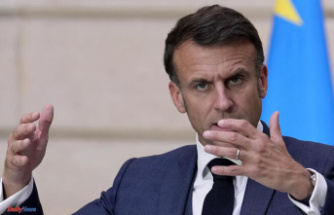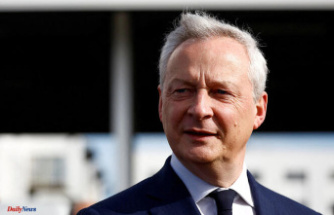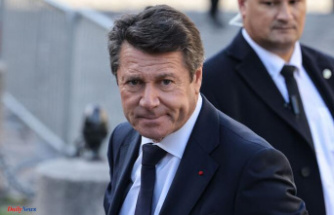The federal government is shirking the description of its goals in the Ukraine war. She has and should explain it to the citizens.
There was a lot of talk at the Munich Security Conference, but there was no answer to the two most important questions by far. Firstly, how much longer will the war in Ukraine go on? Second: At what point should it end from the point of view of the federal government, what should at least be achieved?
Nobody can answer the first question with certainty, because nobody knows what Russia's head of state Vladimir Putin will do - or whether he will suddenly disappear and someone else take power in Moscow. Right from the start, the course of the war repeatedly surprised experts and top politicians, and often even duped them. So people have rightly become more cautious with forecasts. It was the same in Munich at the security conference, the major annual meeting of the military, politicians and experts.
The second question is different. It's not about telling Ukrainians to stop fighting, as Russia trolls and radical pacifists alike want. The point is that a federal government has to formulate German interests, because they have been at stake since day one in Ukraine, but especially since Germany began supplying heavy weapons.
So what is in Germany's interests? What end, where and under what conditions should the war have? What does it mean concretely and practically when Chancellor Olaf Scholz says Ukraine "must not lose" and new Defense Minister Boris Pistorius says Ukraine must "win"? Is that quibble, or is there a significant difference? One would like to know, but the government is silent about it, the Chancellor himself being the loudest. Again. Scholz publicly avoided the question in Munich, speaking of the preparations for "a long war". That is extremely vague and will certainly not keep a majority of Germans behind supporting Ukraine in the long run.
The question of the end of the war and the conduct of the war up to that point can only be answered by Ukraine alone, declared almost all officials in Munich. But that is too short-sighted and not really honest. It seems that the EU states and the USA have imposed certain conditions on Ukraine from the outset regarding the use of the weapons supplied: namely not to use them on recognized Russian territory. So the allies do intervene to protect their interests.
Ukraine has every right to insist that Russia completely withdraw from its territory or be ousted from it militarily. She has every right to do so and international law on top of that. That's what "victory" means, the Ukrainian representatives in Munich left no doubt about that. But the European allies have their doubts, and that was palpable.
The federal government does not seem to have a clear position. You don't know: Is it the German position that Russia should only withdraw from the areas they have conquered since February 24, 2022 - and then you negotiate? Should the districts of Luhansk and Donetsk also be evacuated, which Russia has annexed in violation of international law? Should Ukraine also get back Crimea, which clearly belongs to Ukraine under international law? And above all: should all this be done militarily, if necessary, with German battle tanks and continued support from Europe and the USA? The Ukrainian President answers all these questions with a resounding yes, and the war will not end before then. You can't blame him and the battered country for this determination, that goes without saying.
However, if you ask around in the federal government, including their representatives in Munich, you will find out: nothing or nothing clear. This is a mistake that will pay off. The situation could change at practically any time in such a way that Germany too would have to publicly show its colors: what does it approve of in Ukraine - and what not?
The federal government owes its citizens an idea of how it envisages its way through and out of the war. You can't dump that on the Ukrainian president alone or hide behind him politically.












